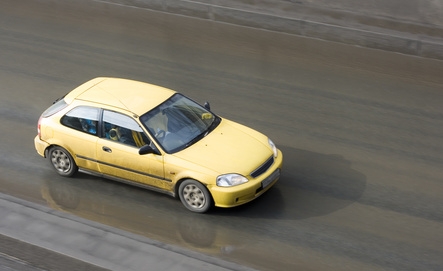
France is known for its bureaucracy, and car buying is not immune to this. However, if you are well-prepared when you set out to buy a car in France, the process is quick and relatively painless. In France, you have different car buying options, including purchasing it from a dealer or buying it privately via an online or printed advertisement. If you are new to France and have never bought a car in the country before, it is best to stick to the dealer route. Car dealers in France provide guarantees on all the cars they sell, whether new or used. They can also make all the paperwork go very smoothly and help you get insurance. Always try to bring someone with you to the car dealer in France that knows about cars. He can inspect it for any hidden issues before you part with your cash. If possible, bring a French friend along. He will be familiar with the system of buying cars in France, and you are less likely to run into trouble with a dealer who may try to take advantage of your inexperience. Used cars in France tend to be a little more dinged up and have more mileage than in other European countries, according to Expat Focus.
Get proof of your residence in France and your identity. To buy a car in France you must be a resident. According to Angloinfo, documents that are accepted as proof are recent electricity or fixed-line phone bills with your name and address on them, the deeds to your house or proof that you are renting. Besides proof of your residence in France, you will also have to prove your identity with a carte de sejour, driver's license or passport. Bring these documents with you when you go to the car dealer to buy your car.
Decide what kind of car you want. When you buy a car in France, the best option is to purchase a French brand. The reasons for this are that French brands tend to be cheaper than foreign brands, garages are much more common (so it is easier to get your car serviced) and parts will be cheaper. There are three major car brands in France: Renault, Citroen and Peugeot. French cars have good results in safety tests. The 2009 Citroen C4 Picasso and Renault Laguna 2007 both received five stars for adult passenger saftey, according to the European New Car Assessment Programme, a recognized crash test organization in Europe.
Look into buying an car that has low CO2 emissions. If you buy a new, greener, car in France you may qualify for a rebate. Angloinfo states that the rebate for a car that emits 100 grams of CO2 for every kilometer is eligible for a 1,000 euro rebate. Up to 120 grams gets a 700 euro rebate and up to 130 grams gets 200 euros. If you buy a car with high CO2 emissions you will have to pay an extra tax at the time of purchase of up to 2,600 euros.
Go to a car dealer in France and test drive some cars before making your decision. Don't hesitate to negotiate, as this will often get you some extras or a reduction in price. If you buy a new or used car from a dealer, the dealer can take care of all the paper work, which includes the name transfer, registration, tax and license plates. This is much easier than trying to do it yourself privately. You will have to pay an additional one-off fee for registering the car, so ask the dealer what this will be to avoid any surprises. This tax is based on the value of the car. French cars come with a guarantee of up to one year depending on the age of the car. If you have a problem with your car during this period, the dealer is obliged to make the repairs without charging you.
Pay for your new car. When you buy a car in France you can pay by credit card, cash or check. However, cash payments are limited, so go this route only if you are buying an inexpensive car.
Get car insurance. France has numerous car insurance providers, so it is possible to shop around. However, if you are new to the country the best option would be to ask the dealer for help. You can get some initial insurance for the first few months and then shop around once you are more settled into French life. Bring proof of your past car insurance with you to the insurance agent so you can get the best price possible.
Register your car. This applies only if you did not buy your car from a dealer. Within one week of getting your new car you need to go to the town hall, which in France is the local Sous Préfecture or Préfecture. Angloinfo states that you must bring the following documents with you when you go: proof of your identity, residence and insurance, carte grise barrée (car registration that is marked Vendu le), certificat de situation administrative, certificat de cession, contrôle technique (CT) certificate (done in the last six months) and a check or cash to pay for the new carte grise. You can also do your car registration online at Carte-grise (see Resources).